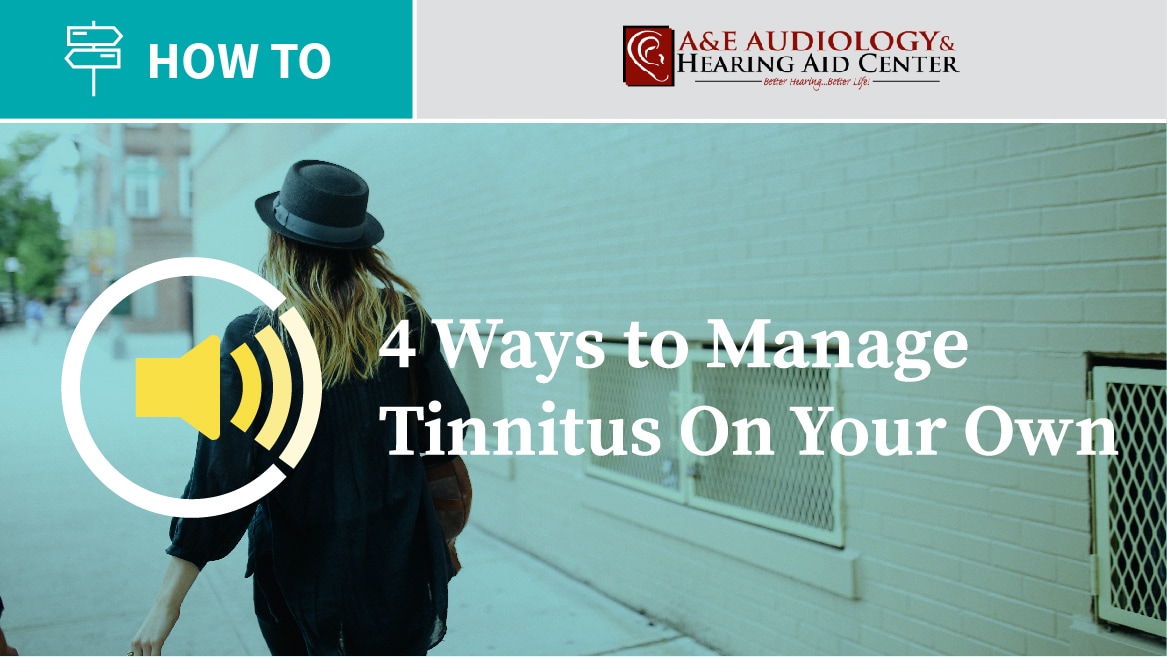4 Ways to Manage the Ringing in Your Ears
Imagine going through life with the a ringing sound, like a high-pitched dental drill, reverberating in your ears. Or a constant whooshing sound echoing, like a shower running in the background.
Sound familiar? This phenomenon isn’t as uncommon as you think.
About 50 million adults in the United States reported having tinnitus, the perception of noise or ringing in the ears. Tweet this
Tinnitus is actually not a disease in and of itself, but rather a symptom of another underlying health condition. Most often it is associated with hearing loss, ear injury, or a circulatory system disorder. This ringing in the ears can be a symptom generated by as many as 200 different health disorders.
The ringing may only be a slight nuisance, but there are some cases where the sound can interfere with your daily life. These sounds may not always be in the form of ringing; the phantom noises could be buzzing, roaring, clicking, or hissing.
If you are concerned with the ringing in your ears, we recommend making an appointment with A&E so we can help you navigate the strange road of phantom noises in your ears. Until then, here are some steps you can take at home to help alleviate this common issue.
1. Avoid possible irritants. Loud noises, caffeine, and nicotine can definitely make your tinnitus worse. If there are other things you have experienced that make the ringing or buzzing worse, avoid those things as well.
Turn down the volume on your car radio. Cut back on the cups of coffee you drink in a day. Consider quitting your daily smoking habit. Taking these steps could help tinnitus from being a more bothersome issue.
2. Reduce your alcohol consumption. Hopefully tinnitus hasn’t driven you to drinking more, because the more you drink, the worse the ringing will become.
Alcohol causes our blood vessels to dilate, causing a greater blood flow. The blood vessels in your inner ear will experience this force of blood flow as you drink alcohol, making tinnitus worse. It’s best to decrease how much alcohol you consume in order to keep these side effects at bay.
3. Manage your stress. Your boss has given you another deadline. Your kids are whining, again. Life has thrown you another curveball, and you feel overwhelmed. Stress creeps into our lives often, in many forms, and it only makes tinnitus worse.
Find time in your day to relax, even if it’s only for 15 minutes. Get to the gym and exercise. Find what works for you to decompress. Maybe that means praying, meditating, enjoying a hobby, or going for a walk. Managing your anxiety could make a difference.
4. Take care of your cardiovascular health. It might not seem related, but as mentioned earlier, blood flow could greatly affect tinnitus.
Being intentional about regularly exercising, eating right, and improving your heart health could alleviate any phantom sounds you hear in your ears.
Tinnitus is not a disease all on its own, but rather, a symptom of another underlying issue. Tweet this
Why not take measures to improve your all-around health? It could make a difference in more ways than one.
Here at A&E, we care not just about how well you hear, but how well you live. Tinnitus can be a frustrating affliction that affects how well you hear, and in turn, your quality of life. If you are taking the steps above to improve this condition but are not seeing the results you hoped for, give us a call. We are willing to do what we can with the best technology to give you the results you are looking for.


















